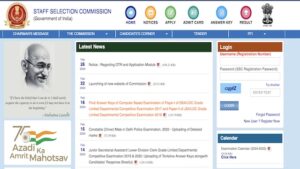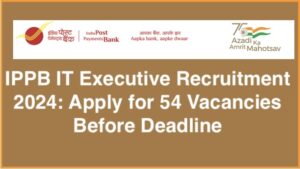Table of Contents
- Initial Struggles
- College Experience
- Realization and Regret
- Career Pivot
- Advice for Young Adults
- The Meaning of Career in Life
- Conclusion
- Frequently Asked Questions (FAQ)
Initial Struggles
We faced significant challenges in getting responses to job applications during college. This frustration led to self-doubt and a belief that their resume was inadequate. However, the advice from seniors and peers was not effective, emphasizing the common but misguided notion that simply extending a resume would solve the problem.
College Experience
Ours college life was marked by a lack of engagement with meaningful activities, spending time in leisurely pursuits rather than participating in extracurriculars. This contrasts sharply with a junior who was actively involved in various campus activities, which the author initially dismissed as frivolous.
Realization and Regret
Post-graduation, the author reflects on how the junior, once mocked, was actually gaining valuable experience by stepping out of his comfort zone. The author realizes the importance of active participation in various activities and how it contributes to personal and professional growth.
Career Pivot
The author narrates a significant career pivot after realizing that the field they initially studied (Civil Engineering) was not where they wanted to be. This led to pursuing a new direction in Mathematical Statistics and Data Science, albeit with some regret over the time and resources spent on an earlier path.
Advice for Young Adults

Navigating the early stages of a career can be a daunting task, filled with uncertainty and a fair share of trial and error. As young adults step into the professional world, they often find themselves overwhelmed by the sheer number of choices, expectations, and pressures from society. Based on reflections and real-life experiences, here are some valuable pieces of career advice for those at the beginning of their journey:
1. Engage Beyond Academics

Academic performance is important, but it isn’t the only factor that shapes your future. College life offers a plethora of opportunities to grow beyond the classroom. Engage in extracurricular activities, join clubs, participate in competitions, and volunteer for events. These experiences not only build your resume but also help you develop soft skills, network, and discover your passions.
Quote: “Participate in everything. If you lose, that’s okay. Loss is good. At least you’re out of your comfort zone. Now you just gotta find out a new zone.”
2. Find Your Passion Early

It’s easy to get caught up in what society or family expects you to do, especially when it comes to choosing a career path. However, the sooner you discover what truly excites and motivates you, the better. This might require exploration through internships, online courses, or even casual reading. The goal is to identify a field that aligns with your strengths and interests.
Quote: “Don’t waste your time, energy, and money in pursuing something you know you will not use later in your life.”
3. Don’t Fear a Career Pivot

It’s common to feel stuck after realizing that your chosen field isn’t what you want to pursue for the rest of your life. Changing direction might seem daunting, especially if it means going back to school or starting from scratch. However, it’s crucial to understand that it’s never too late to switch to something that will bring you fulfillment in the long run.
Quote: “I have always thought that if I could change my branch in the 1st year… I could have still pursued it by taking additional courses.”
4. Research and Plan Your Path

Do your research and plan your career path early. This doesn’t mean you need to have everything figured out, but having a direction helps in making informed decisions. Look for opportunities that align with your long-term goals, be it internships, courses, or networking events. The world is full of possibilities, but you need to take the initiative to explore them.
Quote: “The world is full of opportunities waiting for you, it is just that you have to make the first move towards the right opportunity.”
5. Embrace Failure and Learn from It

Failure is an inevitable part of any journey. Instead of fearing it, embrace it as a learning opportunity. Each setback teaches you something valuable, whether it’s a lesson in resilience, adaptability, or a push to refine your approach. The key is to keep moving forward and not let failures define your trajectory.
Quote: “If you lose, that’s okay. Loss is good.”
The Meaning of Career in Life

A career is more than just a job; it is a significant aspect of one’s life that encompasses personal growth, satisfaction, and a sense of purpose. It’s the pathway through which you can express your abilities, contribute to society, and achieve your goals. Therefore, it’s essential to choose a career that aligns with your values and passions, rather than one dictated by external pressures.
Conclusion
For young adults embarking on their career journey, the road ahead is filled with opportunities as well as challenges. The key is to stay proactive, curious, and flexible. Engage in activities beyond academics, find your true passion, be open to changes, and never stop learning. Most importantly, remember that it’s your journey—make choices that resonate with who you are and where you want to go in life.
Frequently Asked Questions (FAQ)
- What is the most important factor in career success?
- Engaging in activities beyond academics is crucial. Networking, gaining experience, and developing soft skills are essential for career growth.
- How can I find my passion early in my career?
- Explore various fields through internships, online courses, and volunteering. Identify what excites you and aligns with your strengths.
- What should I do if I realize my current field isn’t right for me?
- Don’t hesitate to pivot. Research alternative paths, gain relevant skills, and make a gradual shift to a field that resonates with you.
- Is it okay to have a non-linear career path?
- Absolutely! Career paths are often non-linear. Embrace changes and opportunities that align with your evolving interests and goals.
- How can I improve my resume as a college student?
- Participate in extracurricular activities, internships, and volunteer work. These experiences will help you build a strong, diverse resume.
- What should I focus on during college to enhance my career prospects?
- Focus on both academics and extracurricular activities. Building a well-rounded skill set is key to standing out in the job market.
- How important is networking in building a career?
- Networking is vital. It opens doors to opportunities, provides mentorship, and helps you stay informed about industry trends.
- Can failure be beneficial in a career journey?
- Yes, failure is a valuable learning experience. It teaches resilience, adaptability, and often leads to personal and professional growth.
- What are the benefits of stepping out of your comfort zone?
- Stepping out of your comfort zone leads to new experiences, skill development, and greater confidence in handling challenges.
- How do I know if I’m on the right career path?
- Reflect on whether your work aligns with your passions and long-term goals. If not, consider exploring other options.
- How can I effectively balance academics and extracurricular activities?
- Prioritize your time and set clear goals. Both academics and extracurriculars are important, so find a balance that works for you.
- What if I have no idea what I want to do after college?
- Start by exploring different fields through internships, part-time jobs, and informational interviews. Clarity will come with exploration.
- Is it necessary to have a detailed career plan?
- While it’s good to have a direction, being flexible is equally important. Opportunities and interests can evolve over time.
- How can I make my resume stand out with limited experience?
- Focus on relevant skills, academic projects, and any extracurricular achievements. Tailor your resume to the job you’re applying for.
- Should I follow my passion or a stable career path?
- Ideally, find a balance between passion and practicality. A career that aligns with your passion is more fulfilling in the long run.
- How do I build a strong professional network?
- Attend industry events, join professional groups, and leverage social media platforms like LinkedIn to connect with professionals.
- What’s the importance of internships during college?
- Internships provide real-world experience, help you build a network, and can often lead to job offers after graduation.
- How do I handle job rejections?
- Understand that rejection is part of the process. Use it as feedback to improve your applications and keep persevering.
- How can I avoid burnout early in my career?
- Prioritize work-life balance, set boundaries, and make time for activities that recharge you outside of work.
- What’s the best way to start a career in a new field?
- Gain relevant skills through online courses, certifications, and network with professionals in the new field to learn and find opportunities.
- How can I stay motivated in a career I’m not passionate about?
- Focus on the skills you’re learning and how they might apply to future opportunities. Consider a gradual transition to something you love.
- Is it okay to take a gap year after graduation?
- Yes, a gap year can be beneficial if used for gaining experience, exploring interests, or developing new skills.
- How do I decide between multiple job offers?
- Consider factors like company culture, growth opportunities, work-life balance, and how each aligns with your long-term goals.
- What are the risks of staying in a job you dislike?
- Staying in an unsatisfying job can lead to burnout, lack of motivation, and hinder your long-term career growth.
- How can I future-proof my career?
- Continuously learn and adapt to new technologies, trends, and skills. Stay open to change and be proactive in your career development.



